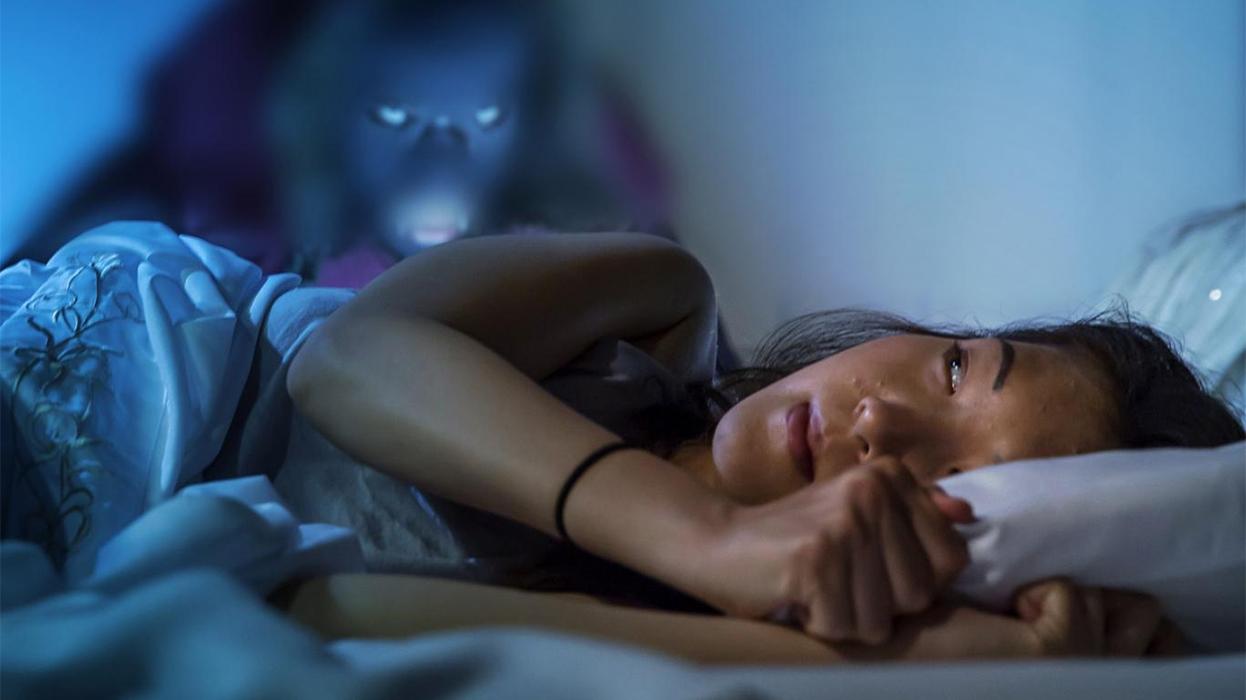
Ever woken up unable to move, feeling a heavy weight on your chest? That eerie experience is called sleep paralysis. It's a phenomenon where you find yourself awake but temporarily paralyzed, often accompanied by hallucinations. While it sounds terrifying, it's more common than you might think. Around 8% of people experience it at least once in their lives. Some cultures even have folklore explaining it as a visit from a supernatural being. But don't worry, there's a scientific explanation. Sleep paralysis happens during the transition between wakefulness and sleep when your brain and body aren't quite in sync. Curious to know more? Let's dive into 18 intriguing facts about this mysterious condition.
What is Sleep Paralysis?
Sleep paralysis is a phenomenon where a person, either during falling asleep or waking up, temporarily experiences an inability to move or speak. This can be a frightening experience, often accompanied by hallucinations. Here are some intriguing facts about sleep paralysis.
-
Common Occurrence: Sleep paralysis affects about 8% of the general population at least once in their lifetime.
-
REM Sleep: It occurs during REM (Rapid Eye Movement) sleep when the brain is active, but the body is in a state of muscle atonia, or paralysis.
-
Hallucinations: Many people report seeing or sensing a presence in the room, often described as a shadowy figure or an intruder.
Causes of Sleep Paralysis
Understanding what triggers sleep paralysis can help in managing it better. Here are some common causes.
-
Sleep Deprivation: Lack of sleep is a significant trigger for sleep paralysis episodes.
-
Irregular Sleep Schedules: Frequently changing sleep patterns, such as those caused by shift work or jet lag, can increase the likelihood.
-
Stress and Anxiety: High levels of stress and anxiety are known to contribute to sleep paralysis.
Symptoms of Sleep Paralysis
Recognizing the symptoms can help differentiate sleep paralysis from other sleep disorders.
-
Inability to Move: The most prominent symptom is the temporary inability to move or speak.
-
Chest Pressure: Many people feel a heavy weight on their chest, making it hard to breathe.
-
Visual and Auditory Hallucinations: Seeing figures or hearing sounds that aren't there is common.
Cultural Interpretations
Different cultures have their own explanations and beliefs about sleep paralysis.
-
The Old Hag: In Newfoundland, Canada, sleep paralysis is often referred to as "the Old Hag," where a witch-like figure is believed to sit on the chest of the victim.
-
Kanashibari: In Japan, it's called "kanashibari," which translates to being bound or fastened in metal.
-
Nightmare: In Scandinavian folklore, sleep paralysis is attributed to a creature called the "mare," which sits on the chest of sleepers.
Coping Mechanisms
There are ways to manage and reduce the frequency of sleep paralysis episodes.
-
Good Sleep Hygiene: Maintaining a regular sleep schedule and ensuring adequate sleep can help.
-
Stress Management: Techniques like meditation, yoga, and deep breathing exercises can reduce stress levels.
-
Avoid Stimulants: Reducing the intake of caffeine and other stimulants, especially before bedtime, can be beneficial.
Medical Perspective
From a medical standpoint, sleep paralysis is well-documented and studied.
-
Not Harmful: While terrifying, sleep paralysis is generally not harmful and doesn't cause any physical damage.
-
Linked to Narcolepsy: It is often associated with narcolepsy, a condition characterized by excessive daytime sleepiness.
-
Treatment Options: In severe cases, doctors may prescribe antidepressants to regulate sleep patterns and reduce occurrences.
Final Thoughts on Sleep Paralysis
Sleep paralysis isn't just a spooky bedtime story. It's a real phenomenon affecting many people. Understanding its causes, like disrupted sleep patterns or stress, can help manage it better. If you experience it, try to stay calm and remember it’s temporary. Simple changes in your sleep routine, like maintaining a regular sleep schedule or reducing stress, can make a big difference. If it becomes frequent or severely impacts your life, consider talking to a healthcare professional. They can offer guidance and possible treatments. Sleep paralysis might be unsettling, but with the right knowledge and approach, it doesn’t have to control your nights. Stay informed, take care of your sleep hygiene, and don’t hesitate to seek help if needed. Sweet dreams!
Was this page helpful?
Our commitment to delivering trustworthy and engaging content is at the heart of what we do. Each fact on our site is contributed by real users like you, bringing a wealth of diverse insights and information. To ensure the highest standards of accuracy and reliability, our dedicated editors meticulously review each submission. This process guarantees that the facts we share are not only fascinating but also credible. Trust in our commitment to quality and authenticity as you explore and learn with us.


